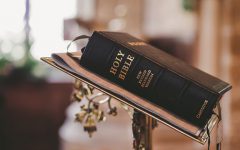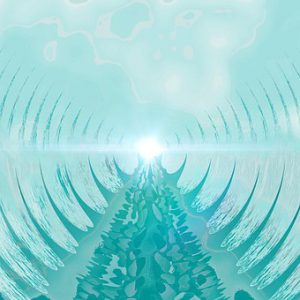Read Luke 5, then discuss the questions. Don’t rely on the answers alone, but discuss or ponder each of the questions and how they might relate to you today.
Questions with Answers
Why were the multitudes pressing on Yeshua as he stood by the lake of Gennesaret?
The multitudes wanted to hear the word of Alaha as Yeshua was teaching.
Additional Thoughts: Like the crowds, we too should be eager to hear the teachings of Mshikha.
What were the fishermen doing when Yeshua saw their boats?
They had left their boats and were washing their nets.
Additional Thoughts: Are we willing to drop everything to come to Yeshua’s feet?
What instruction did Yeshua give Simon after he finished teaching?
He told Simon to go into the deep water and let down his nets for a catch.
How did Simon respond to Yeshua’s command to let down the nets?
He expressed doubt, saying they had worked all night and caught nothing, but he obeyed and let down the nets because Yeshua said so.
What happened when Simon and his companions let down their nets?
They caught such a large number of fish that their nets began to break.
Additional Thoughts: The Teacher of Righteousness said: “This passage carries deep symbolic meaning for us today, particularly in spiritual and evangelistic contexts. The overwhelming number of fish represents the overflowing blessings and provision that come from trusting in Yeshua. Just as the disciples had labored all night without success, many people struggle through life relying solely on their own efforts. However, when they act in faith and obey Yeshua Mshikha, they experience Alaha’s provision beyond what they could have imagined. This teaches that Alaha’s resources are limitless, and He provides abundantly when we trust in Him. The fish represent people being brought into the Kingdom of Alaha. The breaking nets symbolize how great the harvest of souls can be when the Gospel is taught. Today, this reminds believers that when they share the message of Mshikha, there can be an overwhelming response, requiring teamwork (just as the disciples called for their partners to help). It shows the importance of unity and cooperation in spreading the Gospel. The breaking of the nets tell us that we must be ready to adapt, grow, and expand our faith and ministries to accommodate what Alaha is doing. Simon Peter initially doubted because they had worked all night and caught nothing. Many people today feel discouraged when their efforts seem fruitless. Yet, when they follow Yeshua’s direction, they may experience unexpected success. This teaches that human expertise alone is not enough; true success comes from faith and obedience to Alaha. Since the nets were breaking, it shows that human efforts alone cannot handle the work of Mar-Yah. People today often try to serve Alaha in their own strength, but this passage tells them that they need His power, wisdom, and guidance to sustain the work He has called them to do. The disciples were astonished at the catch, but this was just the beginning. Yeshua used this miracle to prepare them for their greater mission – spreading the Gospel worldwide. Today, this passage encourages us to see our current blessings or challenges as preparation for even greater works in Mar-Yah’s plan. The breaking nets symbolize the overwhelming nature of Alaha’s blessings, the vast potential of evangelism, and the necessity of faith, teamwork, and divine ability. When we follow Yeshua’s guidance, He will do more than we could ever expect, but we must also be prepared to handle the abundance He provides.”
Why did they call for their partners in the other boat?
Their nets were breaking under the weight of the fish, and they needed help to haul in the catch.
What was Simon Peter’s reaction to the miraculous catch of fish?
He fell at Yeshua’s knees and said, “Depart from me, for I am a sinful man, Lord.”
Why did Simon Peter say, “Depart from me, for I am a sinful man, Lord”?
He was overwhelmed by Yeshua’s divine power and felt unworthy to be in His presence.
What did Yeshua tell Simon about his future role?
Yeshua told him, “Don’t be afraid. From now on you will be catching people alive.” Some versions say “You will be catchers of men.”
What did Simon, James, and John do after they brought their boats to land?
They left everything and followed Yeshua.
Additional Thoughts: How can you apply this verse to your own life?
What did the man with leprosy do when he saw Yeshua?
He fell on his face and begged Yeshua to make him clean.
Additional Thoughts: How are we as sinful human beings similar to the man with leprosy?
What did the man say to Yeshua?
“Lord, if you want to, you can make me clean.”
Additional Thoughts: How does Yeshua make us clean?
How did Yeshua respond to the leper’s request?
He stretched out His hand, touched him, and said, “I want to. Be made clean.”
What happened immediately after Yeshua touched the man?
The leprosy left him immediately.
Why did Yeshua command the man to show himself to the priest?
It is a requirement of the Law for a healed leper to be examined and declared clean by a priest.
What did Yeshua tell the man to do as a testimony?
To offer the sacrifices required by the Law for cleansing, as a testimony to the priests and the people.
How did the news about Yeshua spread after this miracle?
The report spread widely, and large crowds came to hear Him and be healed.
Why did Yeshua withdraw to the desert to pray?
He needed solitude to pray and maintain His connection with the Father despite His growing fame.
Why couldn’t the men bring the paralyzed man directly to Yeshua?
The crowd was too large, blocking the entrance.
How did they manage to get the paralyzed man in front of Yeshua?
They went up to the roof, removed some tiles, and lowered the man on his cot into the middle of the crowd before Yeshua.
Additional Thoughts: No matter what, this man’s friends were going to make sure that he was going to be seen by Yeshua. Are we willing to be like this man’s friends and make sure our loved ones know about Yeshua?
What did Yeshua say when he saw their faith?
“Man, your sins are forgiven you.”
Why did the scribes and Pharisees accuse Yeshua of blasphemy?
Because they believed that only Alaha could forgive sins.
What question did Yeshua ask to challenge the Pharisees’ thoughts?
“Which is easier to say, ‘Your sins are forgiven you,’ or to say, ‘Arise and walk’?”
What did Yeshua say to prove his authority to forgive sins?
He commanded the paralyzed man to rise, take up his cot, and go home.
What happened immediately after Yeshua told the paralyzed man to rise and walk?
The man got up, took his mat, and went home glorifying Alaha.
How did the people react to this miracle?
They were amazed, glorified Alaha, and were filled with fear.
What did they say after witnessing these events?
“We have seen strange things today.”
Who was Levi, and what was he doing when Yeshua called him?
Levi was a tax collector, sitting at his tax booth.
How did Levi respond to Yeshua’s invitation?
He left everything, got up, and followed Yeshua.
Additional Thoughts: Like the fishermen, are we willing to give up everything and follow Yeshua and be faithful to his teachings?
Who were the guests at Levi’s feast?
A large group of tax collectors and others.
What complaint did the Pharisees and scribes make against Yeshua’ disciples?
They asked why Yeshua and His disciples ate and drank with tax collectors and sinners.
How did Yeshua respond to their criticism?
He said that those who are healthy do not need a doctor, but those who are sick do.
What did Yeshua mean when he said, “Those who are healthy have no need for a physician”?
He came to call sinners, not the self-righteous, to repentance.
What was Yeshua’s purpose in calling sinners to repentance?
He offered them forgiveness, transformation and eternal life.
What question did the Pharisees ask Yeshua about fasting?
They asked why his disciples did not fast like those of John the Baptist and the Pharisees.
How did Yeshua respond with the analogy of the bridegroom?
He said that the wedding guests do not fast while the bridegroom is with them.
Additional Thoughts: A wedding is a time of great joy and celebration, and fasting is typically associated with mourning, repentance, or seeking Alaha in difficult times. Yeshua was explaining that as long as he was with his disciples, it was a time of joy, not mourning. Just as no one fasts during a joyful wedding celebration, his followers were not expected to fast while he was still with them, teaching and guiding them. However, he also hinted that a time would come when the bridegroom (Yeshua) would be taken away – a reference to his eventual death. At that time, his disciples would fast, symbolizing their sorrow and longing for his return.
What did Yeshua mean when he said the days would come when the bridegroom would be taken away?
He was referring to his future death, after which his disciples would fast.
What was the meaning of the parable about the new garment and the old garment?
Mixing the old and new does not work; Yeshua’s message was not meant to be patched onto old traditions that had been created by the false religious teachers.
What lesson was Yeshua teaching with the analogy of new wine and old wineskins?
The New Covenant he was bringing required a new way of thinking, not rigid adherence to manmade regulations.
Why does new wine need to be put into fresh wineskins?
To allow for expansion, as old wineskins would burst under the pressure of fermenting new wine.
What did Yeshua mean when he said, “The old is better”?
People are often resistant to change, preferring what is familiar.


 Shalom brothers and sisters in Yeshua ha’Mashiach,
Shalom brothers and sisters in Yeshua ha’Mashiach,